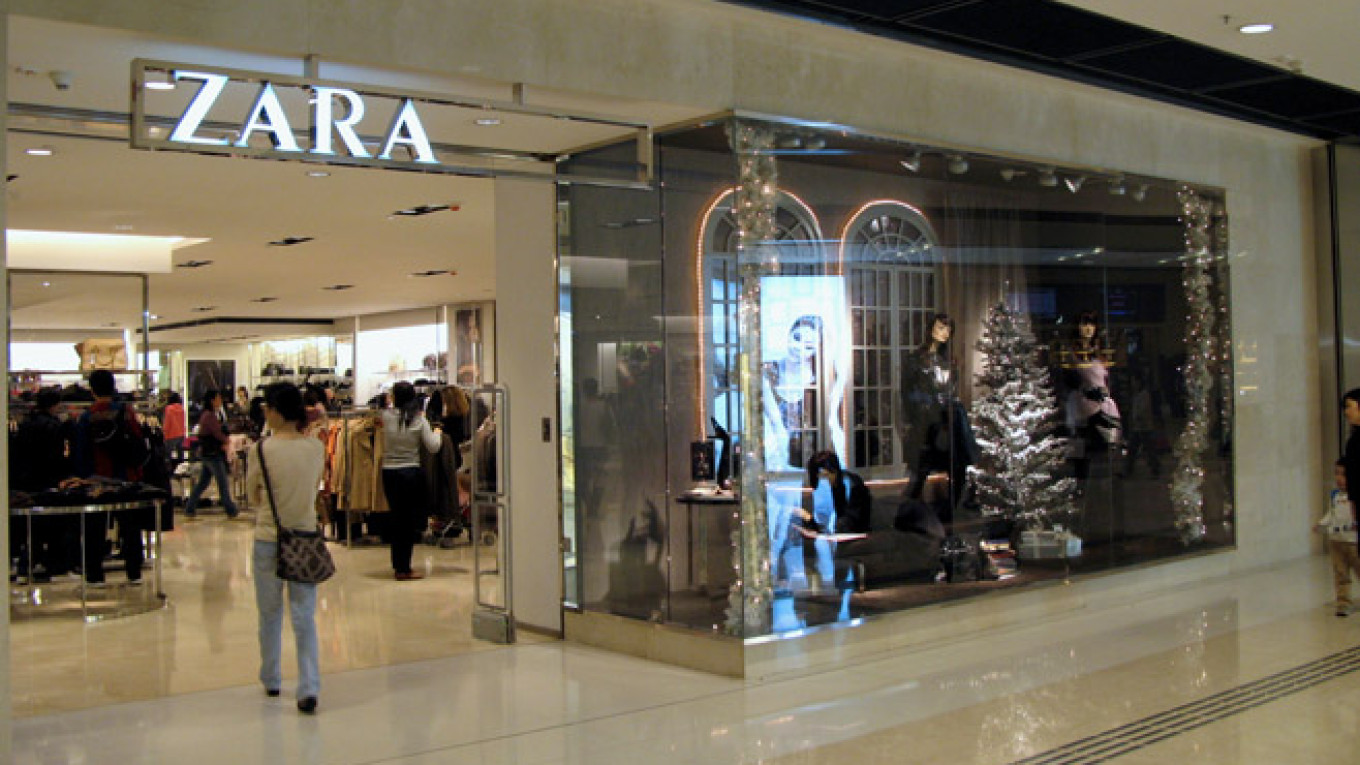Russian clothing and shoes stores are caught between a rock and a hard place, with the rapid devaluation of the ruble wrecking their business plans while falling demand makes it impossible to raise prices, business daily Vedomosti reported Friday.
Major sellers halted new orders this week as the ruble crashed 20 percent on Tuesday, its largest one-day slide since the financial crisis of 1998. The currency recouped its losses to stand at about 59 rubles to the dollar and 73 to the euro on Friday — 1.5 percent down on the week — but is still over 40 percent weaker than at the year's start.
BNS Group — which manages Calvin Klein, Armani Jeans, Michael Kors and TopShop in Russia, among others — has halted new orders for several of its brands, CEO Denis Bogatyryov told Vedomosti. So has market leader Inditex, a company employee told the paper. Inditex declined official comment.
All in all, about 10 percent of deliveries on the fashion market have been frozen in monetary terms, Darya Yadernaya, managing director of fashion consultancy Esper Group, told Vedomosti.
Meanwhile, clothing and shoe stores are negotiating with landlords, cutting special holiday deals and halting payment to suppliers in a desperate effort to cut costs, market players told the newspaper.
The one thing they can't do is raise prices. Demand has been stagnating since early December, and when budget retailers tried to raise prices amid ruble fluctuations in November, sales plummeted, executives from Russian shoe retailer Zenden told the paper.
Stores will have to hike their prices eventually, however. Retail prices will rise about 30 percent from the levels of last spring, Zenden's managing director said. An executive from a bargain clothing chain told Vedomosti that prices will rise 10 to 15 percent, barring hyperinflation.
As prices climb in the coming year, product range will slide the other way.
Buyers should expect a "stylistic monotony," Yadernaya said. Some stores may not have enough money to pay for new collections, since they have already spent their entire budget paying for the previous ones, an unidentified clothing executive told the paper.
A Message from The Moscow Times:
Dear readers,
We are facing unprecedented challenges. Russia's Prosecutor General's Office has designated The Moscow Times as an "undesirable" organization, criminalizing our work and putting our staff at risk of prosecution. This follows our earlier unjust labeling as a "foreign agent."
These actions are direct attempts to silence independent journalism in Russia. The authorities claim our work "discredits the decisions of the Russian leadership." We see things differently: we strive to provide accurate, unbiased reporting on Russia.
We, the journalists of The Moscow Times, refuse to be silenced. But to continue our work, we need your help.
Your support, no matter how small, makes a world of difference. If you can, please support us monthly starting from just $2. It's quick to set up, and every contribution makes a significant impact.
By supporting The Moscow Times, you're defending open, independent journalism in the face of repression. Thank you for standing with us.
Remind me later.


